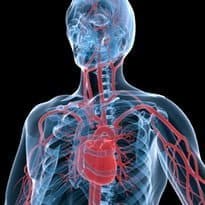Helicon brings hearty service to GPs
- 3 December 2014

University College London spin-out company Helicon Health has formed a partnership with self-monitoring specialist Inhealthcare to integrate its heart condition management and education software into GP clinical systems.
The company’s HeliconHeart system combines clinical management software with clinician and patient education, allowing clinicians to manage patients with atrial fibrillation in the community instead of at hospital. It also enables patients to self-monitor conditions at home.
More than 7,000 patients are currently using the integrated service, which is being used by 33 community sites and two hospitals across five clinical commissioning groups.
The software is compliant with National Institute for Health and Care Excellence guidelines on anticoagulation and self-monitoring, and cited as a learning exemplar in NICE’s guidelines for atrial fibrillation.
The company’s work with Inhealthcare means HeliconHeart can be integrated with all GP systems and a number of other clinical systems via the Spine, using its N3-compatible clinical aggregator platform.
It will also reduce costs for NHS organisations, with no up-front cost for a NICE-recommended CoaguChek patient self-monitoring device provided by Roche, and give more flexibility for self-monitoring patients.
Professor David Patterson, cardiologist and chief executive of Helicon Health, said the partnership means the company is “able to overcome two key barriers that have hampered progress in stroke prevention” by improving interoperability and providing affordable access to an approved self-monitoring device.
“It is a significant milestone for our service and I believe could lead to a step change in how the NHS cares for people at risk of stroke.”
Simon Jones, commercial director of Inhealthcare, said the company is “delighted to be able to combine our digital healthcare expertise with Helicon Health’s extensive clinical experience.”
“Our familiarity with GP systems and access to the NHS spine unlocks HeliconHeart’s full potential to improve the management of anticoagulation patients and encourage more patients to self test.”




